Top 10 Essential Tips for New RVers
RVing has become a beloved way to explore the great outdoors, offering the perfect blend of adventure and comfort. For new RVers, however, hitting the road for the first time can be daunting. To ensure a smooth and enjoyable journey, it’s crucial to be well-prepared. Here are the top 10 essential tips to get you started on your RV adventure.
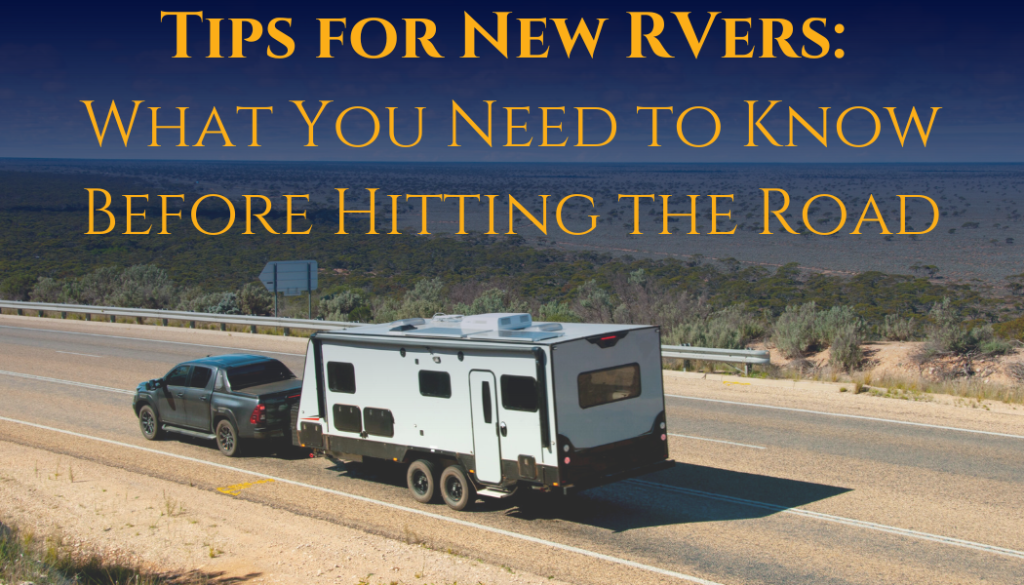
Choose the Right RV for Your Needs
Types of RVs
Choosing the right RV is the first step to a successful trip. There are various types of RVs, including motorhomes (Class A, B, and C), travel trailers, fifth wheels, and campervans. Each type offers different features and benefits, so it’s important to pick one that fits your lifestyle and travel plans.
Factors to Consider
Consider factors such as the size of your travel party, the amenities you need, and your budget. If you’re planning to travel solo or as a couple, a smaller RV might suffice. Families or groups might need a larger model with more sleeping arrangements.
Renting vs. Buying
For new RVers, renting an RV can be a smart choice. It allows you to test different types and sizes without a long-term commitment. Once you’re sure about the RV lifestyle, you can consider purchasing your own vehicle.
Understand Your RV’s Systems
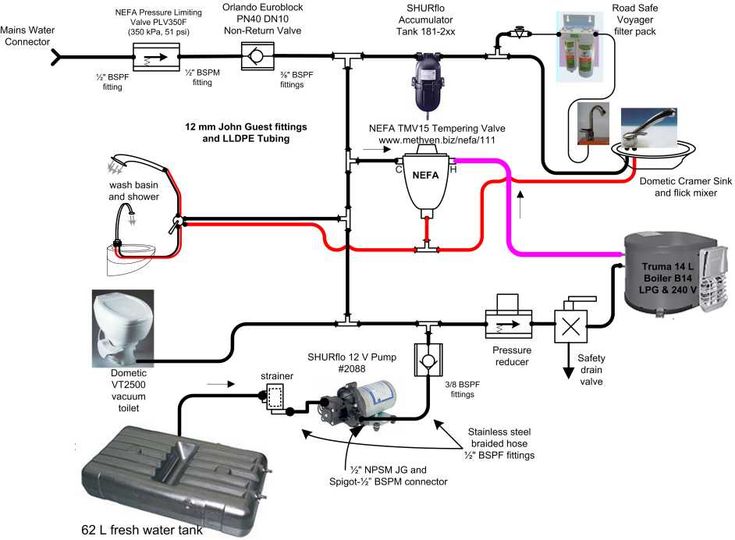
Electrical System
Familiarize yourself with your RV’s electrical system, including how to connect to campground power, use the generator, and manage battery power. Knowing the basics will help you avoid common issues and keep your appliances running smoothly.
Water System
Learn how to fill and empty the water tanks, use the water pump, and conserve water during your trip. Understanding the difference between the freshwater, gray water, and black water tanks is essential for proper maintenance and hygiene.
Propane and Heating System
Your RV’s propane system powers appliances like the stove, refrigerator, and heater. Make sure you know how to safely operate and refill propane tanks, and understand the heating system to stay comfortable in various weather conditions.
Plan Your Route and Stops
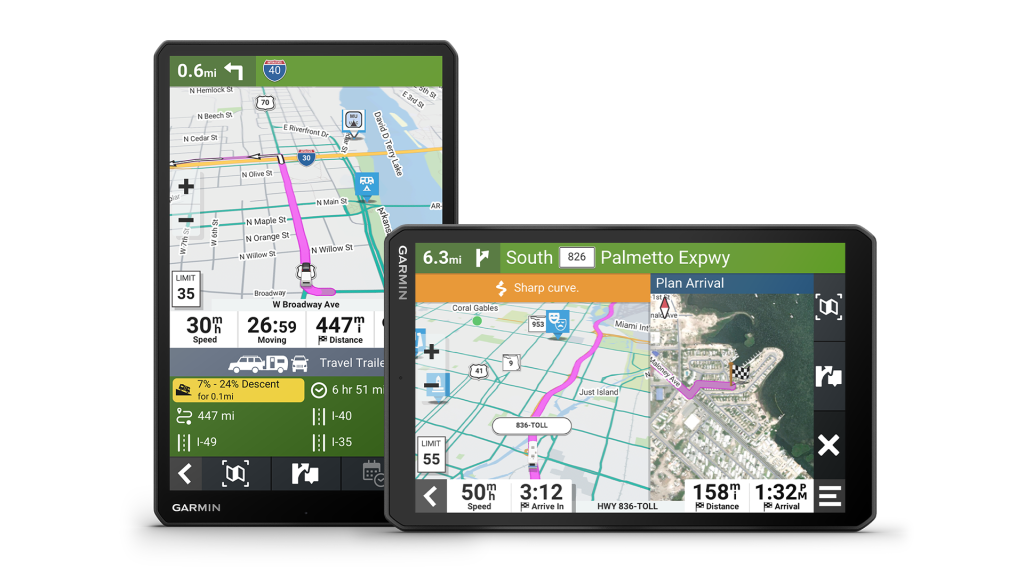
Researching Your Route
Planning your route in advance can save you a lot of hassle. Use RV-specific maps and apps to find the best roads and avoid low bridges or narrow passages that might not be RV-friendly.
Finding RV-Friendly Stops
Look for campgrounds, rest areas, and RV parks along your route. Websites and apps like Campendium, RV Parky, and Allstays provide useful reviews and information about amenities.
Planning for Fuel Stops
RVs consume more fuel than regular vehicles, so it’s important to plan for frequent fuel stops. Know your RV’s fuel range and keep an eye on your fuel gauge to avoid running out of gas in remote areas.
Pack Smart and Light
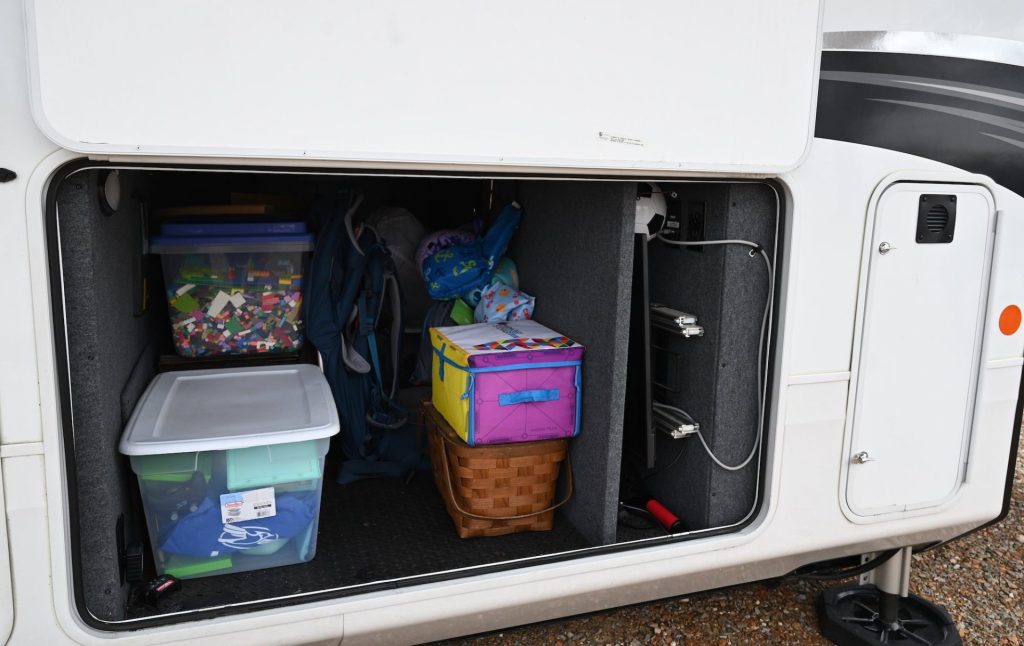
Essentials to Bring
Pack only the essentials for your trip. Include basic tools, kitchen supplies, clothing, toiletries, and outdoor gear. Think about the activities you’ll be doing and pack accordingly.
Avoiding Overpacking
Space is limited in an RV, so avoid overpacking. Stick to items that have multiple uses and can be easily stored. Remember, you can often buy items you need along the way.
Organizing Your Space
Use storage bins, hanging organizers, and collapsible containers to keep your RV tidy. Labeling items and creating designated spaces for frequently used items can help you stay organized.
Practice Driving and Parking
Handling Different RV Sizes
Driving an RV is different from driving a car, especially larger models. Take time to practice driving in a safe, open area before hitting the road. Get comfortable with the RV’s size, turning radius, and blind spots.
Parking Tips
When parking your RV, look for level ground and use leveling blocks if necessary. Practice parking in various conditions, such as tight spots and uneven terrain, to build your confidence.
Backing Up Safely
Backing up can be tricky, especially in large RVs. Use your mirrors and have a spotter guide you if possible. Consider installing a backup camera for added safety.
Know the Campground Etiquette
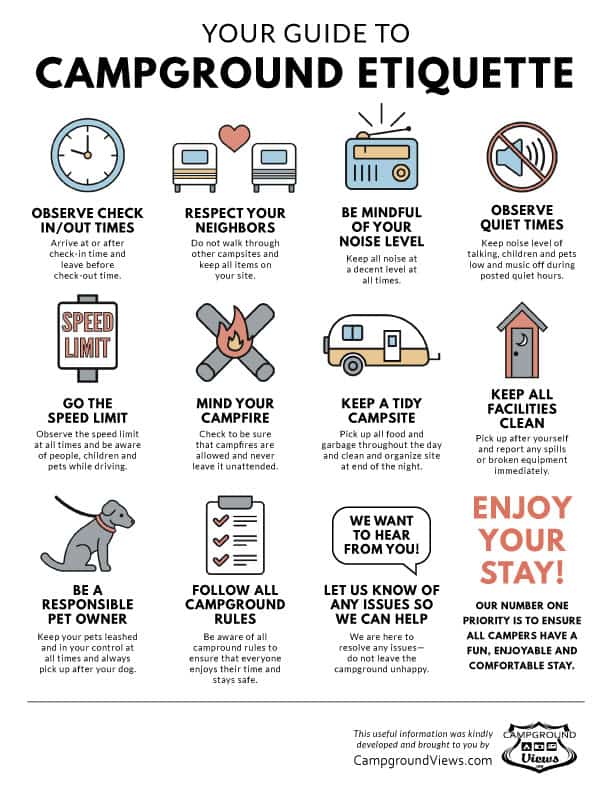
Reserving Spots
Many popular campgrounds require reservations, especially during peak seasons. Book your spots in advance to ensure availability and avoid last-minute stress.
Setting Up Your Campsite
Once you arrive, take your time to set up your campsite properly. Position your RV, extend the awning, and set up any outdoor furniture or equipment. Make sure your RV is level and connected to necessary utilities.
Respecting Quiet Hours and Neighbors
Campgrounds have rules to ensure everyone enjoys their stay. Respect quiet hours, keep your campsite clean, and be considerate of your neighbors. A friendly attitude goes a long way in creating a pleasant environment for all.
Maintain Your RV Regularly
Routine Maintenance Tasks
Regular maintenance is key to keeping your RV in good condition. This includes checking the engine oil, inspecting the roof for leaks, and cleaning the exterior.
Checking Tire Pressure and Fluids
Before each trip, check your tire pressure and top off essential fluids like oil, coolant, and windshield washer fluid. Properly inflated tires improve fuel efficiency and safety.
Seasonal Maintenance
Different seasons require different maintenance tasks. Winterize your RV before cold weather hits, and perform a thorough inspection before summer travels. Keeping up with seasonal maintenance prevents costly repairs down the road.
Stay Connected and Safe
Essential Safety Gear
Carry essential safety gear, including a first aid kit, fire extinguisher, and roadside emergency kit. Having these items on hand can make a big difference in case of an emergency.
Staying Connected on the Road
Reliable internet is important for navigation, communication, and entertainment. Consider a mobile hotspot or a campground with Wi-Fi. Satellite internet is another option for remote areas.
Emergency Preparedness
Have a plan for emergencies, including breakdowns and medical issues. Keep important phone numbers handy, know the location of the nearest hospitals, and have a basic understanding of RV troubleshooting.
Budgeting for Your RV Trip

Estimating Costs
Calculate your expected expenses, including fuel, campground fees, food, and activities. Having a budget helps you manage your finances and avoid surprises.
Managing Expenses
Track your spending during the trip to stay within your budget. Look for free or low-cost activities and consider cooking meals in your RV instead of dining out.
Saving on the Road
Join RV clubs for discounts on campgrounds and services. Use apps to find the cheapest gas prices and consider staying at free campsites when possible.
Join RV Communities and Resources
Benefits of RV Clubs
Joining an RV club can offer numerous benefits, including discounts, resources, and a supportive community. Popular clubs include Good Sam Club, Escapees RV Club, and FMCA.
Online Forums and Resources
Online forums like RV.net and Reddit’s r/RV community are great places to ask questions, share experiences, and learn from other RVers. Websites like RVshare and Outdoorsy provide valuable information and tips.
Attending RV Shows and Events
RV shows and events are excellent opportunities to learn about the latest RV models, gadgets, and travel destinations. They also offer a chance to meet fellow RV enthusiasts and expand your network.
Enjoy the Journey
Embracing the RV Lifestyle
RVing is more than just a way to travel; it’s a lifestyle. Embrace the freedom, flexibility, and adventure that comes with it. Take time to relax, explore, and appreciate the journey.
Making the Most of Your Travels
Plan activities and sightseeing along your route, but also leave room for spontaneity. Some of the best experiences come from unexpected detours and discoveries.
Creating Lasting Memories
Whether you’re traveling with family, friends, or solo, RVing creates lasting memories. Capture these moments with photos, journals, or videos to look back on your adventures.
Conclusion
RVing offers a unique way to explore the world with the comforts of home. By following these essential tips, you can ensure a smooth and enjoyable journey as a new RVer. So pack your bags, hit the road, and embark on an adventure of a lifetime.
FAQs
What are the best times to go RVing? Spring and fall are ideal for RVing due to mild weather and fewer crowds. Summer is popular but can be busy, while winter offers a quieter experience.
How do I find RV-friendly campsites? Use apps and websites like Campendium, RV Parky, and Allstays to find and book RV-friendly campsites.
What should I do in case of an RV breakdown? Have a roadside assistance plan, carry basic tools and spare parts, and keep emergency contacts handy. Stay calm and follow safety procedures.
Are pets allowed in most RV parks? Yes, most RV parks allow pets, but it’s best to check each park’s specific pet policy and any associated fees or restrictions.
How do I stay connected to the internet while RVing? Use a mobile hotspot, look for campgrounds with Wi-Fi, or consider satellite internet for remote areas.
Safe travels!